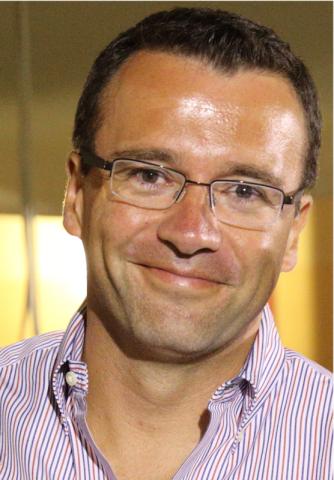-
Sept. 16, 2019
4:45 p.m. - 6 p.m.
+ Google CalendarGoodpaster Hall-Room 195Intended AudienceFacultyStaffStudentsGeneral public

The Neuroscience Program welcomes Dr. Joseph Cheer (University of Maryland School of Medicine) as the first speaker in its 2019-2020 series. He will speak on:
"Dopamine, cues & reward: What do endocannabinoids have to do with it?"
In the early stages of substance abuse, subjects receive a drug that is highly reinforcing and are thus likely to repeat the actions that led them to obtain it. This is termed positive reinforcement. However, in a minority of people who develop an addiction phenotype, negative reinforcement also causes a behavior to be repeated, but in this case, the action causes a bad feeling or situation to go away. The mesolimbic dopamine system, which is thought to generate a teaching signal, is involved in the selection of advantageous behavioral repertoires. This brain pathway is under control of endocannabinoid (eCBs), ubiquitous signaling molecules that bind to the same receptor targeted by marijuana (CB1) known to strengthen responses leading to the procurement of reward. Here, we investigate how eCBs modulate dopaminergic encoding of cues predicting either, appetitive stimuli, the avoidance of punishment or aversive outcomes.
Dr. Cheer graduated from the Universidad de los Andes (Bogota, Colombia) with a B.S in Biology in 1996. He joined the Laboratory of Neurobiology and Experimental Microsurgery at the Colombian Neurology Foundation where he worked for 1 year investigating CNS regeneration using oncogene-transfected cells and sciatic nerve co-grafts in motor cortex-lesioned animals. Joe received his Ph.D from The University of Nottingham (Neuroscience Section of the School of Biomedical Sciences) under the direction of Profs Charles Marsden, Dave Kendall and Dr Rob Mason. Joe’s graduate research focused on the behavioral and electrophysiological effects of cannabinoids.
Cheer's first postdoc (2000-2002) was spent in Sam Deadwyler's laboratory (Wake Forest University School of Medicine) where he conducted research on multiple single-unit electrophysiology in freely moving rats. Joe then joined the Wightman lab at UNC Chapel Hill as a postdoc in September of 2001. His work there involved the simultaneous measurement of unit activity and dopamine release (FSCV) using the same carbon fiber electrode in awake behaving rats.
Cheer was a tenure-track assistant professor at Albany Medical College from 2006 to 2008. He then moved to the University of Maryland School of Medicine as a tenure-track assistant professor and was promoted to associate professor with tenure in 2012. In the spring of 2017 he was promoted to full professor. He currently directs several NIH and private foundation-funded postdoctoral, graduate and undergraduate projects related to neurophysiological and neurochemical aspects of endogenous cannabinoid signaling in intact systems.
This lecture counts toward the Lecture Reflection Requirement for PSYC 303, PSYC 490, and PSYC 493/494.
Sponsor(s)NeuroscienceDr. Aileen Baileyambailey@smcm.edu240-895-4338Lecture
